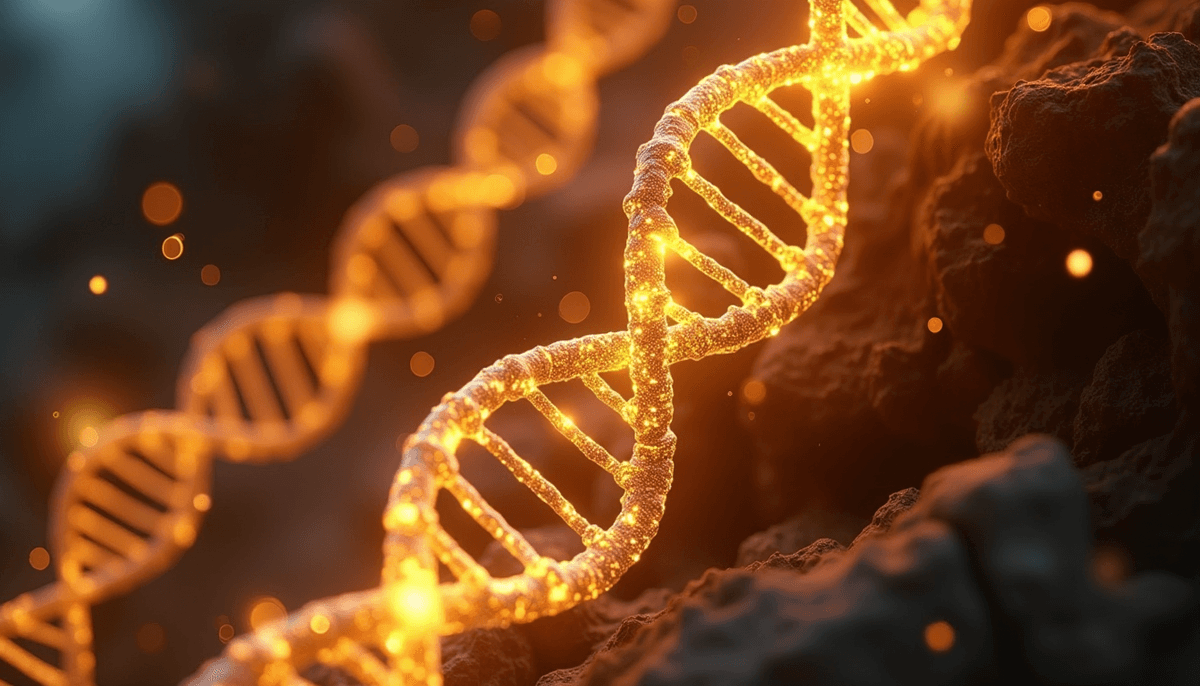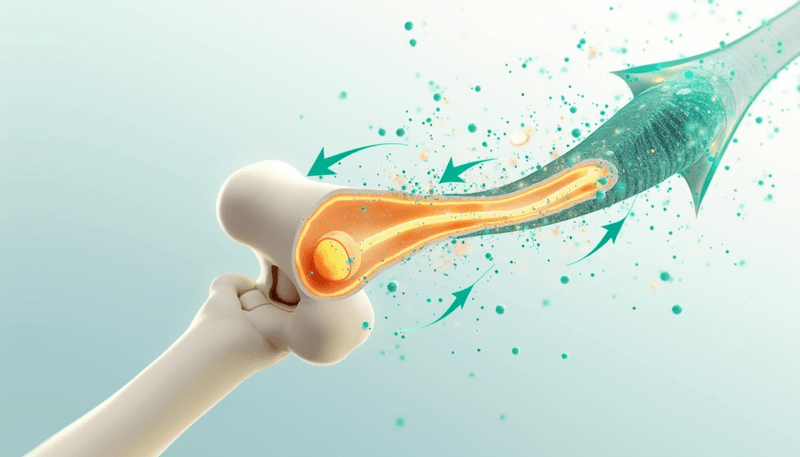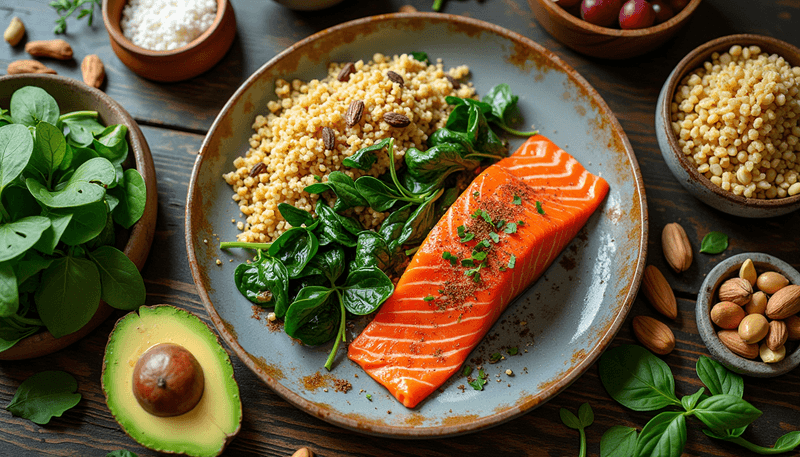CoQ10: Hidden Defender of Bone Health

Your bones are constantly changing - breaking down and rebuilding in a delicate dance that keeps your skeleton strong. But what happens when this balance tips toward breakdown, especially after menopause? A groundbreaking study reveals how a natural compound called Coenzyme Q10 (CoQ10) might be the key to maintaining healthy bones as we age.
The Natural Shield: CoQ10's Role in Bone Protection
Think of your bones as a bustling city, where construction (bone building) and demolition (bone breakdown) happen simultaneously. After menopause, the demolition crew - called osteoclasts - becomes overactive, leading to bone loss. CoQ10 acts like a skilled project manager, helping maintain the right balance between these activities.
"Could the answer to stronger bones be already present in our bodies, just waiting to be optimized?"
The science shows that CoQ10 works by:
- Reducing harmful molecules called reactive oxygen species (ROS) - imagine these as rust that weakens the steel beams of a building
- Activating your body's natural cleanup system (autophagy) - like a highly efficient recycling program for your cells
- Regulating important cellular pathways that control bone breakdown
The Power of Cellular Cleanup
Your body has an amazing ability to clean up damaged cell parts and recycle them - this process is called autophagy. Think of it as your cells' own Marie Kondo, keeping everything tidy and functional. The research shows that CoQ10 boosts this cleanup system, particularly in bone cells.
Practical Application:
-
Consider adding CoQ10-rich foods to your diet:
- Organ meats (in moderation)
- Fatty fish like salmon and sardines
- Whole grains
- Nuts and seeds
-
Discuss CoQ10 supplementation with your healthcare provider, especially if you're:
- Approaching or in menopause
- Have a family history of osteoporosis
- Take statin medications
Beyond Supplements: Supporting Your Body's CoQ10 Production
Your body naturally produces CoQ10, but this production decreases with age. Here's how to support your body's natural CoQ10 levels:
Lifestyle Strategies:
- Regular moderate exercise (like walking or swimming)
- Stress management through meditation or yoga
- Adequate sleep (7-9 hours)
- Reducing exposure to environmental toxins
Ask yourself: "What small changes can I make today to better support my bone health for tomorrow?"
The research points to CoQ10 as a promising natural approach for bone health, especially for women concerned about osteoporosis. While traditional medications like bisphosphonates have their place, they often come with side effects. CoQ10 offers a gentler, supportive option that works with your body's natural processes.
Final Thoughts and Action Steps:
- Start with food-based sources of CoQ10
- Monitor your bone health through regular check-ups
- Consider CoQ10 supplementation as part of a comprehensive bone health strategy
- Stay active with weight-bearing exercises
- Maintain a balanced, nutrient-rich diet
Your turn: Pick one bone-healthy habit from this article and commit to practicing it for the next 30 days. Which one will you choose?

Amelia Grace Okonkwo
Amelia Grace Okonkwo is a freelance health writer and author with over 15 years of experience in health journalism, specializing in women's health and autoimmune disorders. With a background in biology and a Master’s in Public Health from Johns Hopkins, she combines scientific accuracy with a storytelling approach to make health information accessible and empowering. Amelia is known for her bestselling book, "The Skin We're In," which explores autoimmune disorders and their impact. She is passionate about delivering practical health insights for women, addressing topics from midlife wellness to mental health.







